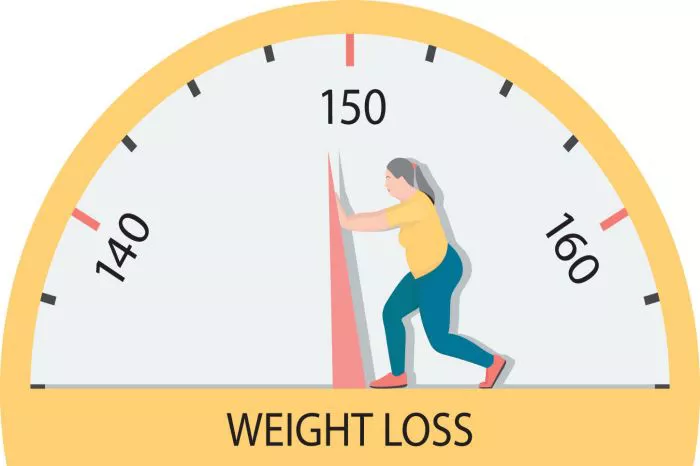Weight loss is a common symptom experienced by individuals with cancer, and it can occur for a variety of reasons related to the disease itself, its treatment, or other factors. While weight loss can sometimes be attributed to lifestyle changes or other benign causes, it’s essential to recognize when unexplained or unintentional weight loss may indicate an underlying health concern, such as cancer. In this comprehensive guide, we’ll explore the significance of weight loss as a symptom of cancer, discuss its potential causes, and provide insights into its management and implications for overall health.
Understanding Unexplained Weight Loss:
Unexplained weight loss is defined as a loss of body weight that occurs unintentionally and without an apparent cause. While it’s normal for body weight to fluctuate slightly over time, significant or persistent weight loss—typically defined as a loss of 5% or more of body weight within a six- to 12-month period—may indicate an underlying health issue, such as cancer. Weight loss associated with cancer can affect both fat mass and lean muscle mass and may occur even in individuals who continue to eat normally or have a healthy appetite.
Significance of Weight Loss in Cancer:
Weight loss is a significant symptom in cancer patients and is often associated with advanced disease, poorer prognosis, and reduced quality of life. Research has shown that cancer-related weight loss can negatively impact treatment outcomes, increase the risk of complications, and contribute to functional decline and decreased survival rates. Additionally, weight loss may be a sign of cancer recurrence or progression in individuals who have undergone treatment and achieved remission.
Causes of Weight Loss in Cancer:
Weight loss in cancer patients can be attributed to a variety of factors, including the metabolic effects of the disease itself, the body’s response to treatment, and other cancer-related complications. Tumor metabolism, for example, can lead to increased energy expenditure and nutrient utilization, resulting in a negative energy balance and subsequent weight loss. Additionally, certain types of cancer, such as gastrointestinal or pancreatic cancer, may impair nutrient absorption or cause symptoms such as nausea, vomiting, or early satiety, further contributing to weight loss.
Treatment-Related Weight Loss:
In addition to the effects of the disease itself, cancer treatment modalities such as chemotherapy, radiation therapy, and surgery can also contribute to weight loss. Chemotherapy drugs may cause side effects such as nausea, vomiting, diarrhea, or loss of appetite, making it difficult for patients to maintain their usual dietary intake. Radiation therapy to the gastrointestinal tract or head and neck region may lead to mucositis, dysphagia, or taste changes, further exacerbating nutritional deficits. Surgical interventions, particularly those involving the digestive system, may affect nutrient absorption or metabolism and result in weight loss postoperatively.
Nutritional Implications and Challenges:
Weight loss in cancer patients can have significant nutritional implications and present unique challenges for dietary management. Malnutrition, defined as inadequate intake of energy, protein, and other essential nutrients, is a common complication of cancer-related weight loss and can exacerbate symptoms, impair treatment tolerance, and compromise immune function. Additionally, malnutrition is associated with increased morbidity and mortality rates and can negatively impact quality of life and overall prognosis.
Management Strategies:
The management of weight loss in cancer patients requires a multidisciplinary approach that addresses both the underlying causes of weight loss and the individual’s nutritional and supportive care needs. Treatment strategies may include nutritional counseling and support, symptom management, pharmacologic interventions, and supportive therapies such as oral nutritional supplements or enteral or parenteral nutrition. Additionally, healthcare providers may collaborate with patients to develop personalized dietary plans that optimize nutrient intake, address treatment-related side effects, and promote overall well-being.
Supportive Care and Palliative Interventions:
For individuals with advanced or incurable cancer, supportive care and palliative interventions play a crucial role in managing weight loss and improving quality of life. Palliative care focuses on alleviating symptoms, enhancing comfort, and addressing psychosocial and spiritual needs, rather than curing the disease itself. Supportive interventions such as pain management, psychosocial support, and end-of-life care can help patients and their families navigate the physical, emotional, and spiritual challenges associated with cancer-related weight loss and end-of-life care decisions.
Conclusion:
Weight loss is a significant symptom in cancer patients and can have profound implications for overall health, treatment outcomes, and quality of life. While weight loss may occur for a variety of reasons related to the disease process, its treatment, or other factors, unexplained or unintentional weight loss should prompt further evaluation by healthcare providers to rule out underlying health concerns, such as cancer. By recognizing the significance of weight loss as a symptom of cancer and addressing the underlying causes with appropriate interventions and support, healthcare providers can help improve outcomes and enhance the overall well-being of individuals affected by this challenging symptom.
Related Topics:
Postpartum Weight Loss: Safe and Effective Strategies


